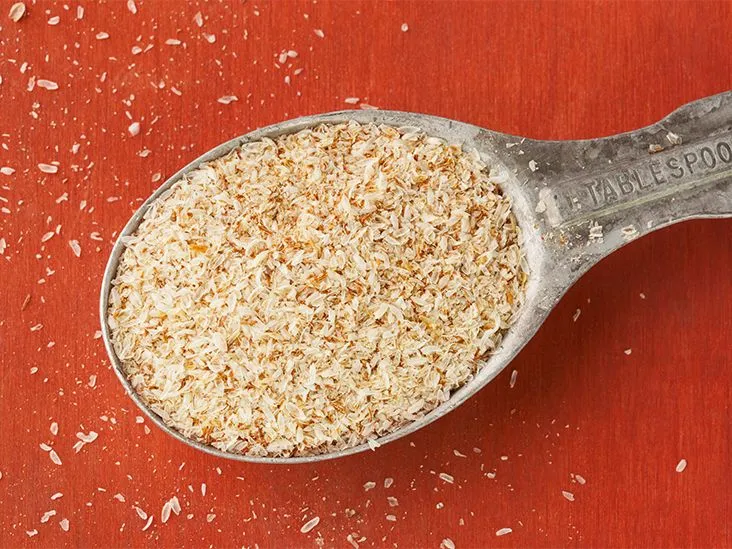Metamucil: Understanding its Uses, Mechanism, and Benefits
Introduction to Metamucil
Metamucil is a widely recognized and frequently utilized over-the-counter supplement that belongs to the category of dietary fiber supplements. It is predominantly composed of psyllium husk, a form of soluble fiber derived from the seeds of the Plantago ovata plant. This supplement has gained immense popularity for its multiple health benefits, from aiding digestive health to contributing to cardiovascular wellness. As a fiber supplement, Metamucil is pivotal in combating the modern decline in dietary fiber intake, primarily attributed to the consumption of highly processed foods in place of whole grains, fruits, and vegetables source.
What is Metamucil?
Composition and Types
Metamucil consists mainly of psyllium husk, a natural source of soluble fiber. Psyllium is a mix of both soluble and insoluble fiber, but the soluble component is what gives psyllium its characteristic gelatinous texture when mixed with water. This property makes it an effective supplement for both laxation and postprandial glucose management source.
The product line of Metamucil includes plain psyllium fiber powder, sugar-free formulations, and flavored options to cater to diverse consumer preferences. While the primary form is a powder that can be mixed with water or other liquids, Metamucil also offers capsule and wafer forms for ease of use.
Mechanism of Action
When consumed, psyllium fiber in Metamucil absorbs water, expanding to form a viscous gel. This gel increases the mass of stool and softens it, leading to more regular bowel movements source. Furthermore, the gel-like formation can slow the digestion of food, contributing to a sensation of fullness that may aid in weight management. The combination of these effects highlights the functional mechanism of Metamucil as both a bulking fiber and a moderator of digestive processes_.
Approved Uses for Metamucil
Metamucil is approved for several specific health benefits that predominantly exploit its fiber content:
1. Treating Constipation
The most prevalent use of Metamucil is the management of constipation. Psyllium’s water-retentive properties soften stools and bolster their movement through the gastrointestinal tract. The efficacy of psyllium as a gentle laxative makes it preferable for long-term use compared to stimulant laxatives, which should be avoided for prolonged periods due to potential dependency source.
2. Managing Diarrhea
Counterintuitively, Metamucil can also mitigate diarrhea by absorbing excess liquid in the intestines, thus forming firmer stools. This dual action serves as a balancing agent in bowel regularity, addressing common digestive complaints.
3. Lowering Cholesterol Levels
Soluble fiber from psyllium has a noted impact on lowering low-density lipoprotein cholesterol (LDL-C). By interfering with the reabsorption of bile acids in the intestines, psyllium thereby necessitates the hepatic conversion of cholesterol into new bile acids, thus reducing blood cholesterol levels source.
4. Blood Sugar Control
Psyllium fiber can help to stabilize postprandial blood glucose levels. The viscous gel formed in the gut slows carbohydrate digestion and absorption, thus providing a more gradual glucose release into the bloodstream. This property can be particularly useful for individuals managing type 2 diabetes or glucose intolerance source.
5. Assisting in Weight Management
By expanding in the stomach, Metamucil can induce feelings of fullness. This satiety effect helps reduce overall calorie intake, assisting those looking to manage or reduce body weight. Including psyllium as a regular dietary supplement can complement other weight management strategies, making it easier to adhere to a reduced-calorie diet.
How Does Metamucil Work?
Fiber Classification and Function
Metamucil’s efficacy is predicated on the unique function of soluble fiber within the digestive tract. Soluble fibers, such as those found in psyllium, dissolve in water to form a gel-like substance that adds bulk to stool, aids in its passage, and helps capture substances like cholesterol and sugar source. This mechanism is crucial in understanding how Metamucil aids in bowel regularity and metabolic regulation.
Gastrointestinal Benefits
The high water retention capability of psyllium makes it especially potent for increasing stool volume, alleviating constipation, and regulating bowel movements. In conditions like irritable bowel syndrome (IBS), where symptoms can alternate between constipation and diarrhea, psyllium’s modulatory effects can provide symptomatic relief by normalizing stool consistency and egestion frequency.
Cardiovascular Impact
Soluble dietary fibers like psyllium contribute to cardiovascular health by facilitating lipid regulation. This is largely due to the fiber’s ability to adsorb bile acids, forcing the liver to produce more bile using cholesterol, leading to its reduced concentration in the blood. Regular consumption of soluble fiber has been correlated with lower LDL cholesterol levels, thereby reducing the risk factors associated with cardiovascular disease source.
Metabolic Influences
The advantage of soluble fiber in glucose regulation further embeds its importance in dietary regimens, particularly for individuals with metabolic syndromes or type 2 diabetes. By attenuating the glycemic response to meals, psyllium can play a critical role in nutritional management and metabolic health.
In summary, Metamucil serves a multifaceted role in health maintenance. From promoting digestive regularity to exerting beneficial effects on metabolic and cardiovascular parameters, its contribution to health is grounded in its primary ingredient: psyllium. Understanding its mechanism and diverse uses underscores the importance of incorporating adequate dietary fiber in daily nutrition, whether through naturally fiber-rich foods or through supplementation like Metamucil.
Metamucil: Understanding its Uses, Mechanism, and Benefits
Metamucil Clinical Trials
The clinical efficacy of Metamucil has been extensively studied, especially concerning its primary ingredient—psyllium. Several studies have demonstrated its effectiveness in managing various gastrointestinal disorders, such as constipation and irritable bowel syndrome (IBS).
Evidence Supporting Fiber Use in Constipation
One significant study aimed to investigate psyllium’s role in improving stool frequency and consistency. It conclusively showed that psyllium not only increases stool frequency but also improves stool consistency, making it a beneficial treatment for chronic constipation with minimal gastrointestinal side effects source.
Impact on Satiety and Weight Management
Another study focused on psyllium’s effect on satiety showed that consumption before meals can significantly reduce the feeling of hunger and the desire to eat. This method was beneficial in promoting a sensation of fullness, which is critical for those looking to manage weight source.
The Side Effects of Metamucil
While Metamucil offers numerous health benefits, potential side effects should be considered, particularly in individuals with specific health conditions or in cases of excessive use.
Commonly Reported Side Effects
-
Gastrointestinal Discomfort: Flatulence, bloating, and abdominal discomfort are frequent complaints but typically subside as the body adjusts to increased fiber intake source.
-
Choking Hazard: If not taken with sufficient water, Metamucil can swell and cause obstruction in the throat or esophagus. Proper hydration is crucial when using this supplement source.
Rare but Serious Side Effects
Although Metamucil is generally safe, rare allergic reactions can occur, leading to itching, rash, or breathing difficulties. Immediate medical attention should be sought if these symptoms arise source.
Contraindications
Individuals suffering from certain conditions like bowel obstruction or certain metabolic disorders should consult a healthcare provider before taking Metamucil. Its use must be tailored to individual health profiles to avoid complications source.
Comparative Analysis
Comparison with Other Fiber Supplements
Metamucil is not the only fiber supplement available, but its unique soluble fiber content distinguishes it from other common types like methylcellulose and wheat bran. Comparative studies suggest psyllium, the primary ingredient in Metamucil, is more effective at enhancing stool water content and improving fecal consistency source.
-
Methylcellulose: Unlike psyllium, methylcellulose does not form a gel and is considered less effective in managing cholesterol and glucose levels source.
-
Wheat Bran: While bran is often recommended for constipation, psyllium is superior due to its water retention capacity and overall digestive benefits source.
Efficacy and Safety Profile
Psyllium has a favorable safety profile, with widespread acceptance as a first-line treatment for constipation. Its efficacy compares favorably against other products, such as stimulant laxatives, which have more pronounced side effects source.
Conclusion
Metamucil has carved a niche for itself as a versatile and effective supplement for addressing various health concerns, especially those related to gastrointestinal and metabolic health. Its principal component, psyllium, is well-supported by scientific evidence for promoting intestinal regularity, facilitating weight management, and reducing cholesterol levels with minimal side effects source.
By incorporating Metamucil into a daily regimen, individuals can combat the adverse effects of a low-fiber diet while contributing positively to cardiovascular and metabolic health. Nonetheless, thoughtful use, preferably under medical guidance for those with existing health conditions, ensures the best outcomes and minimizes potential risks source.








